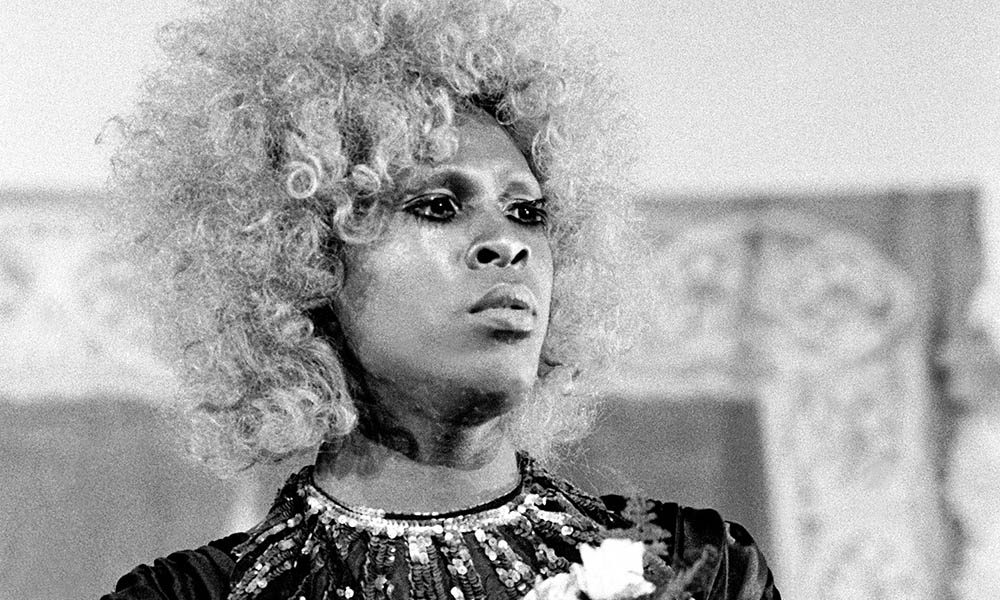Sylvester: Finding Home In Disco
The pioneering artist always lived out loud, even when the world tried to silence and ignore him.

In 1992, poet and LGBTQ activist Essex Hemphill wrote of being Black and openly gay, “we are a wandering tribe that needs to go home before home is gone….there is no place else to go that will be worth so much effort and love.” Sylvester James Jr., a Virgo with a flair for the dramatic, found that home in music.
Listen to Sylvester on Apple Music and Spotify.
Sylvester grew up in the Watts neighborhood of Los Angeles during the Civil Rights Era with his grandmother in a strict Pentecostal household. As a teenager, Sylvester was not only openly queer, but part of a rambunctious group of young, Black drag queens called the Disquotays. He even dressed in drag for his high school graduation. After dealing with homophobic harassment both in the church and at home, he left in 1969, in search of a city that could hold both his queerness and his blinding talent as a singer and songwriter. He landed in San Francisco at the height of the gay rights movement.
After arriving in the Bay area, Sylvester suffered through years of homelessness and instability. While exploring the nightclubs and underground music halls of the city, he found community with other genderfluid folks. In the early 70s, he joined the now legendary drag performance troupe The Cockettes as a full-time member. Two of Sylvester’s musical heroes were Billie Holiday and Josephine Baker, and his time with The Cockettes allowed him to simultaneously showcase his falsetto and the lows of the blues that he mastered in the Pentecostal church. But it wasn’t a perfect fit.
As Joshua Gamson writes in his biography The Fabulous Sylvester: The Legend, the Music, the Seventies in San Francisco: “Sylvester shared the Cockettes’ affinity for outrageous flaming, their celebration of sex and gayness, their love of acid and good hash, and their bent movie-musical fantasies. Like them, he was making himself up, fantasizing a self into existence. But he usually stood a few feet back, among the Cockettes but never quite one of them.” Sylvester’s solo performances were a steady moment in otherwise psychedelic productions. He wasn’t doing high camp, but saluting his idols with reverence, through a voice that listeners couldn’t help but take seriously.
After a series of performances in New York City, in which Sylvester emerged as the unquestioned star of the group, he left to form a solo act that eventually earned him a record deal. Sylvester’s talent and star quality were undeniable, but the US wasn’t quite ready for a gender non-conforming soul and pop singer. When Sylvester met and started to work closely with producer Patrick Cowley, his music finally channeled the energy of Sylvester’s live show. Their collaborative relationship coincided with disco’s rising dominance, a genre and culture that allowed room for Sylvester’s range of both vocal tone and gender expression. The highlight of their partnership was 1978’s “You Make Me Feel (Mighty Real),” which still stands today as one of the most successful and well-known disco songs of all-time.
In disco music, Sylvester found a refuge, a home where he could start to truly explore. Sylvester needed that space. As Gamson puts it, “gender was an everyday choice” for Sylvester. He lived in an era that was not yet as progressive about gender identity, but many today would consider Sylvester deeply gender fluid and nonbinary, in the same way his music played with the boundaries of sound and pitch. Cathy Cohen’s seminal queer studies essay, 1997’s “Punks, Bulldaggers, and Welfare Queens: The Radical Potential of Queer Politics?” gave framing to Sylvester’s intentional non-conformity: “Queer politics [and] sexual expression is something that always entails the possibility of change, movement, redefinition, and subversive performance – from year to year, from partner to partner, from day to day, even from act to act.” Sylvester was creating himself every day that he lived and it showed in the deeply amorphous sound of his music. He had always lived out loud, even when the world tried to silence and ignore him.
Sylvester brought drama but didn’t trade in tragedy; his public story was one of determined persistence; he was never tragically Black, tragically queer, or even tragically ill. He was quiet about his own AIDS diagnosis even while becoming an early, outspoken AIDS activist before his passing in 1988. As both an artist and human, Sylvester explored the gray area before the mainstream fully acknowledged such space existed. He was ahead of the world he knew.
The 70s was a transformative decade in music, but one of the greatest disappointments of the era was the lack of protection for the marginalized people – Black, brown, LGBTQ, and women – that birthed its sonic makeup. Nonetheless, Sylvester’s legacy is of living in the in-between, of transgressing the hegemonic, of finding a home where many have deemed it desolate and barren. And, in those dark corners, finding deep exuberant joy in the freedom of a space you claim for yourself. A home that no one can take from you.
Mighty Real: Greatest Dance Hits is now available on a limited edition 2LP.
This article was first published in 2020. We are republising it today, in celebration of Sylvester’s birthdate. Black Music Reframed is an ongoing editorial series on uDiscover Music that seeks to encourage a different lens, a wider lens, a new lens, when considering Black music; one not defined by genre parameters or labels, but by the creators. Sales and charts and firsts and rarities are important. But artists, music, and moments that shape culture aren’t always best-sellers, chart-toppers, or immediate successes. This series, which centers Black writers writing about Black music, takes a new look at music and moments that have previously either been overlooked or not had their stories told with the proper context.












